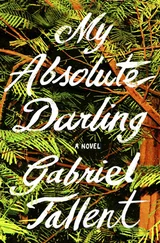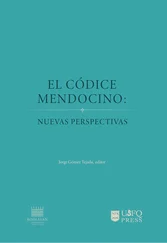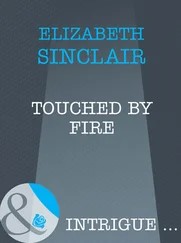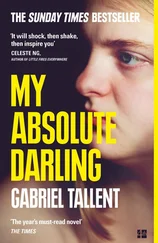I didn’t want to be the one who tells you this. He’s her lawyer. He has to tell her. Bruce is involved with someone.
Disbelief resembles distress, maybe, because he says Hey?
She says Look, it can’t be true. I would have known.
Evidently not.
He said the survivor thing by way of preface to this news. Before this afternoon she has been, not enigmatic exactly, but not particularly readable, and he’d liked the challenge. No tears in her eyes till now. Silently he parts with his idealized version of her: interesting slash almost beautiful, a painter whose work nobody really likes, who is somehow famous anyway, or at least well known.
Who is it?
“Nobody you know.” Each of the three words given its pat of emphasis, either because this is a lie or because it’s a truth, she can’t tell. It’s not so much English-as-a-second-language that is the problem, it’s the inflections and subtleties that would confide truth or its absence if she were a native speaker. In the heat of argument, once, Bruce told her she needed to get a grip , and her bewilderment had magically turned anger to laughter, and the two of them back into lovers.
“Nobody I know?”
“So I’m assured.”
“Nobody I know? He told you that?”
“It was conveyed. Look, X.” Her husband’s nickname for her; the lawyer is trading in overheard intimacies now well out of date. “This is a small town. You should think about that job offer. Get the hell out of Dodge.”
“Dodge?”
“What the sheriff tells the—. Joke. Bad joke. Meaning, basically, elsewhere could have its attractions about now. In terms of not running into them.”
A nameless emotion is born the moment she learns he has slammed the door of an excluding love in her face. It can’t be true that she can’t see in. That she can’t know the story . This is her life she’s been shut out of! Throughout their relationship they have been each other’s great explainers and interpreters, and silence is completely and annihilatingly unlike him. There was nothing they didn’t tell each other, no subject that had been out of bounds. The other side of her need to know the story will be his longing to tell her the story , and what do you do, how can you live, if the one you tell everything to, who tells you everything in return, disappears? What happens to their stories now? And how does this severance feel to him? What does it cost him ? Does the new lover announce outright No talking to Ximena, not ever ? Or is she the sort who doesn’t explicitly forbid but simply makes her fragility clear? After Ximena, the survivor , might fragility have its charms? What had the new woman told him, who was she, what were her eyes like, her mouth? It would be a huge leap toward understanding what had just happened if Ximena could only see the new lover’s eyes. Those eyes would tell Ximena what Bruce thinks he sees, because they have always come to the same conclusions about other people. They were close that way, and after all Ximena knows what he likes in faces and what he has seemed attracted to in the past, though he wasn’t the inconsiderate kind of husband who often calls other women beautiful, and in fact Ximena believes he did not find very many women beautiful, and when he did it was because of intelligence, or soul, something seen in the eyes. Chief among the deprivations of divorce is this awful, inscrutable facelessness of his new lover. Ximena searches her memory for a face interesting enough to have caught his attention. The lawyer is right, theirs is a small town; Ximena must have waited behind the new lover, who was not yet the new lover, in a checkout line, or scoffed at her stupid marginalia in a book in the secondhand bookstore, or brushed past her on a sidewalk, or sat down at the table where she had left her empty coffee cup, or resented the future lover not taking off her perky beret in a movie theater. Ximena can’t ask Bruce, who is the expert on her life, just as a husband should be; she can’t ask him whether she ever encountered the lover, and no one else can clear up the mystery of whether the lover really is unknown to Ximena or say with authority Actually there was this one time. Not knowing is like a ravenous O right in the middle of her mind, crying for the truth. An O like that could turn a person into a stalker. Ximena is not that far gone. She will not haunt Bruce and the new lover, not in real life, not on the Internet. Only, look who they have caused her to understand: menacers, skulkers, crazy people.
Divorce is not linear. One morning there is peace of mind, the next there is wrath. So what if she packed and left, so what if she behaved well and let him keep the house instead of forcing him to sell it and settle up, that doesn’t make her forgiving , it doesn’t mean she feels anything but contempt for the lover and basilisk rage toward him. Good thing they are far away. Just let her see them once more and she will ruin their lives if she can.
Welcome to Iowa, you survivor you. Ximena walks through the emotionless atmosphere found only in new houses. She owns a kitchen sink, electrical outlets, bare walls, a cat brought home from the animal shelter so there will be another heart adapting to this strangeness. Thanks to an oversight by the finish carpenters or whoever, the stairs have not been swept, and the sawdust records her ascent in good peasant footprints, one per tread. See the cunning peas-in-a-pod lineup of her toes, clear as if printed in beach sand. Up comes the cat. Ximena crouches to let the striped cat rub against her knee, her shin, the knuckles of her hands, first the left and then the right. The cat will work methodically, taking small breaks from the project of rubbing its cheek against every new corner and facet of home, and what is Ximena’s project? Should she try rubbing her cheek on facets and corners? Maybe this is a space she can work in, this attic. Skylights permit cloud shadows to roll purposefully across the planks. Bird shadows, too, handfuls of them splashed across her floor, wheel and tilt and vanish. Summer. It’s enough, for now, to be kept track of by a cat, it’s plenty. This is a bare-bones existence, not bare in the sense of poor because she’s not, but bare in the sense of involving minimal contact with other human beings, intelligently bare, Agnes Martin minimal, and the one thing she misses is her studio behind the house in Smoke River. Bruce’s carpentry had proved inadequate to the more fantastic, Russian-dacha elements of the sketch she’d done on a napkin in answer to his question, If you could have the perfect place to paint what would it look like? Because that had been their first cup of coffee, their first conversation, she had not understood he was serious. She had not foreseen his saving the napkin and setting out to translate romance into two-by-fours, and he had not foreseen that romance would not prevail over a lack of competence. Windowpanes cracked for no reason, the roof was always shedding shingles, the door never completely closed, but for her it was the safest place she had ever known, every single nail driven for love of her, and now she will never see it again. Abandoned, its floor pattered over by mice, she supposes, its spire (that was crazy, that he’d built her a spire) waiting for lightning to strike, whimsical little shipwreck rotting in the field behind the house where Bruce lives with, with ( ). The lover’s name is still unknown to her.
The dean who, on first hearing a rumor of her divorce, had sought Ximena out, wooed and reassured and faxed, describes the Indian mounds of a nearby state park, mentions the Art Deco theater featuring indie films, says how pretty spring is in Iowa, how astounding after seemingly endless winter, and Ximena says she looks forward to it, and in fact certain discoveries please her: figs drizzled in honey in the town’s organic restaurant, gingko leaves turning a uniform raincoat yellow, a yoga instructor saying open or softly directly to her knees or knotted shoulders, cajoling Ximena’s body as if that relationship, his with her body, was subject to laws different from those of minds’ polite, slowly accreting acquaintance. Divorce, it turns out, means severance not only from certain cherished versions of oneself but with disliked variants. In particular there is a suffering, slightly famous self that Ximena is glad to forsake. Here are acquaintances who have never heard Bruce narrate the death of Ximena’s father to an entire quieted table of his doctor friends. Now she wonders why he had ever believed he had a right to tell that story. Why keep talking when by staring down at her plate she’d made her resistance plain? Why did he like stories in which harm was done innocence, and why had it taken her so long to wonder why? In his absence, the world’s murderousness continues: the eleven-year-old schoolboy caught abusing five-year-olds; not just one baby found dead in a dumpster, but twins. Bruce believed it was essential to keep abreast of coups, smuggling, assassination. He was one of those catastrophe-literate Americans who knew immediately, from her name, whose daughter she was, and if that had been part of her appeal for him, she had never minded until now, six months into divorce: and now she hears, or rehears, the accusations that had been part and parcel of their intimacy, the failure to engage with her past, the resistance that he stopped short of calling cowardice, her need to paint the same thing over and over again . To break through to the next subject would require courage. She didn’t want to raise her voice with him, not about courage, and not about painting, and not in her studio, because that would have been like screaming in church. There had been one final, bad confrontation. Softly she said that she was already doing what she wanted to and it was the only thing she wanted to do, and under her softness she meant that he should cut it out, this thing of telling her what to paint, but he persisted: “Baby, why not work closer to the bone?” Which, it takes her a moment to understand, means Why not use your own life? Use. He should have said use . “My hown life,” she said — hearing, through anger, the emergence of the accent that will make her seem more perversely authentic to him. “I could hopen a vein and paint with the blood and you’d be pleased , I could paint my father’s shirt with nineteen bullet holes, the shirt left at night on the doorstep for my aunt to find so she could fall to her knees screaming, paint that and you and everyone can say That really happened , and it would make you feel so good, right? because you would have a little piece of this terrible thing, a piece you can handle, which makes you feel more alive, because what you want me to use my father’s death for is to make you and everyone feel more alive , and that makes you a stealer, a leech of emotion, a thief—”
Читать дальше












